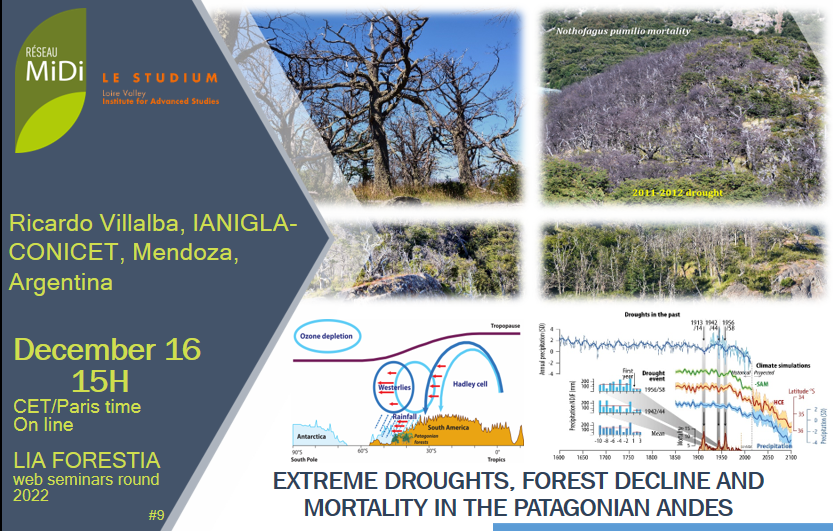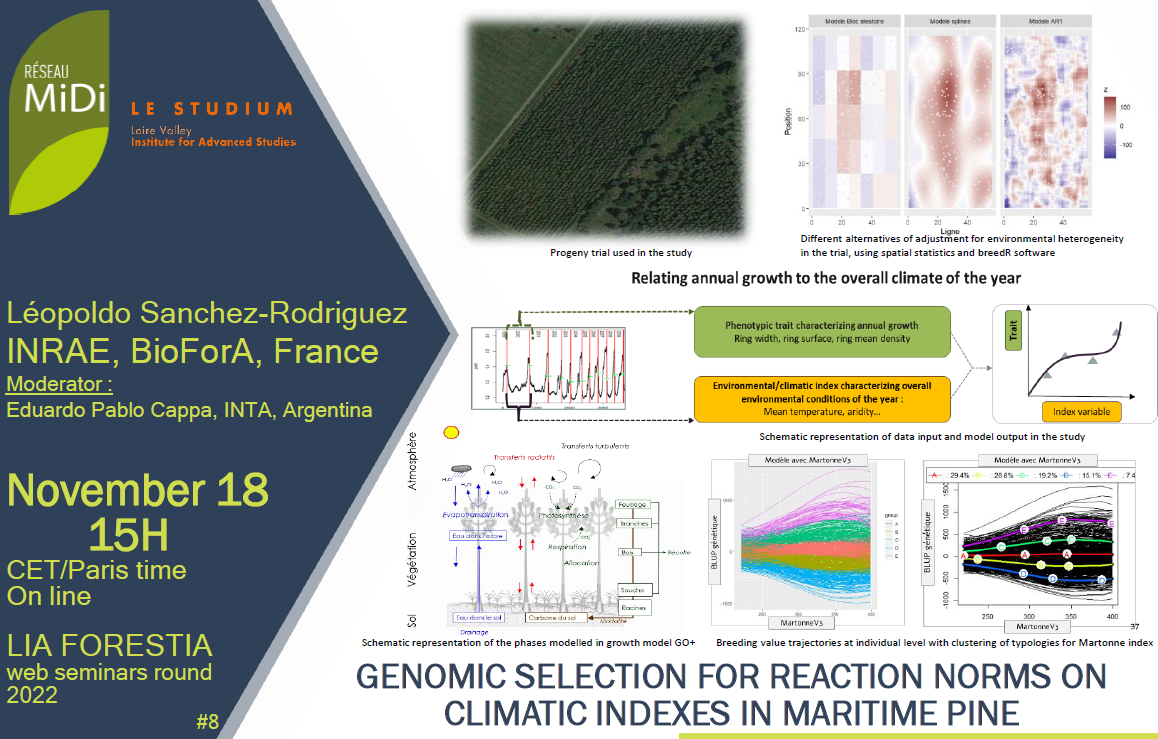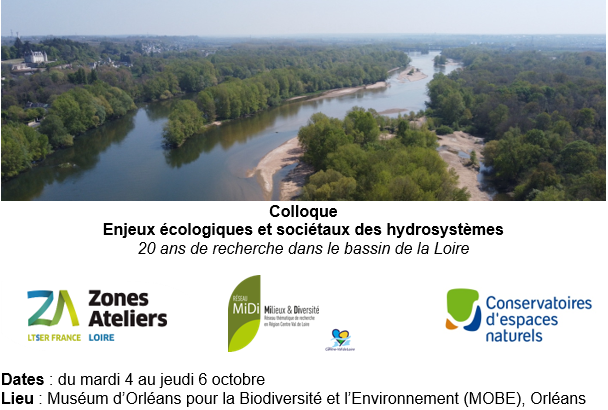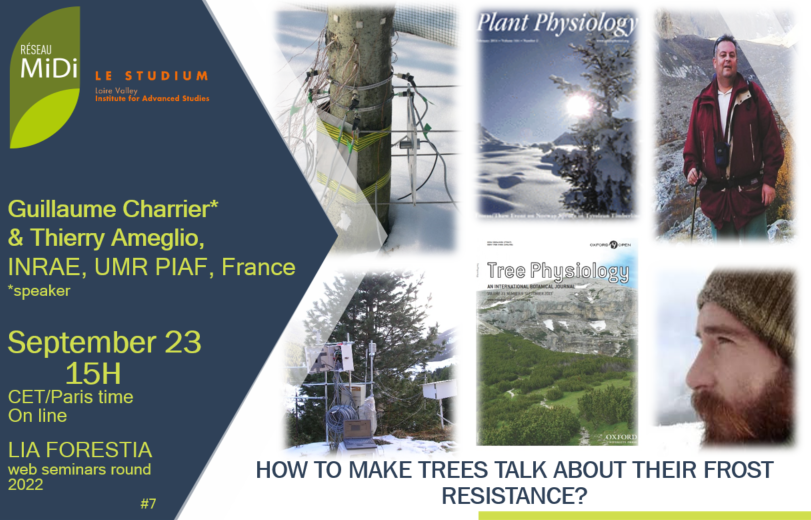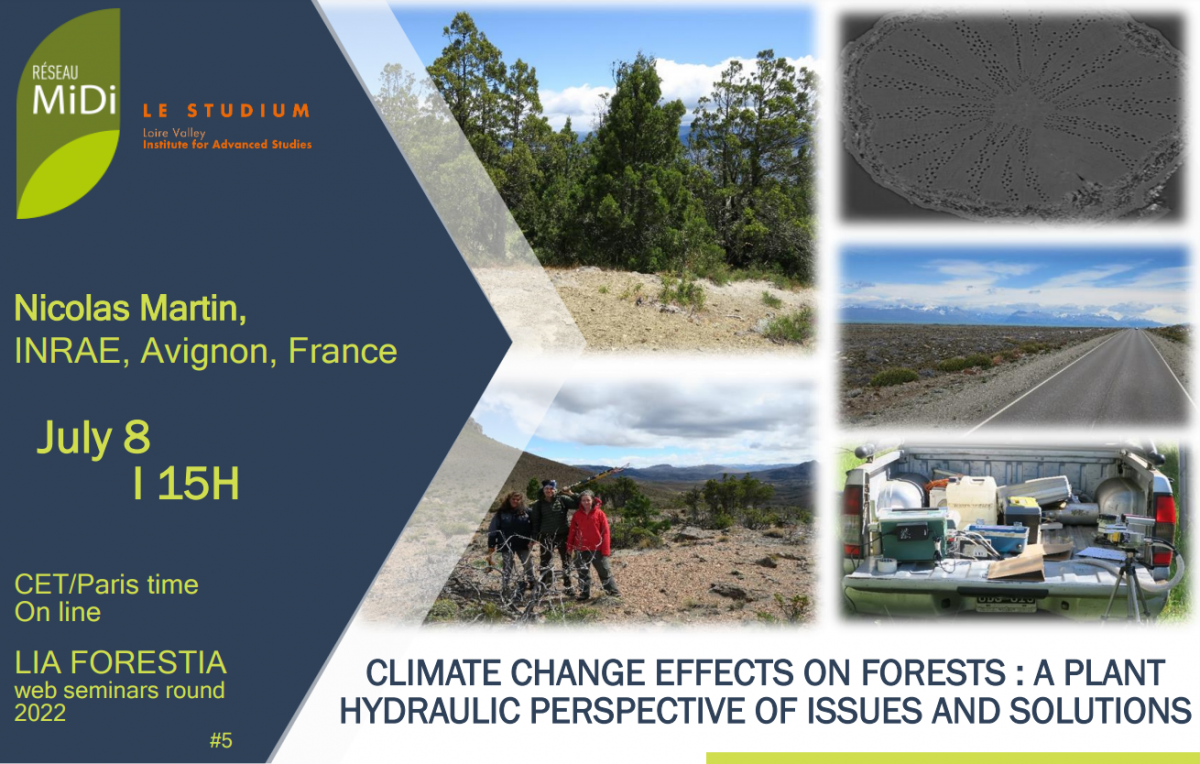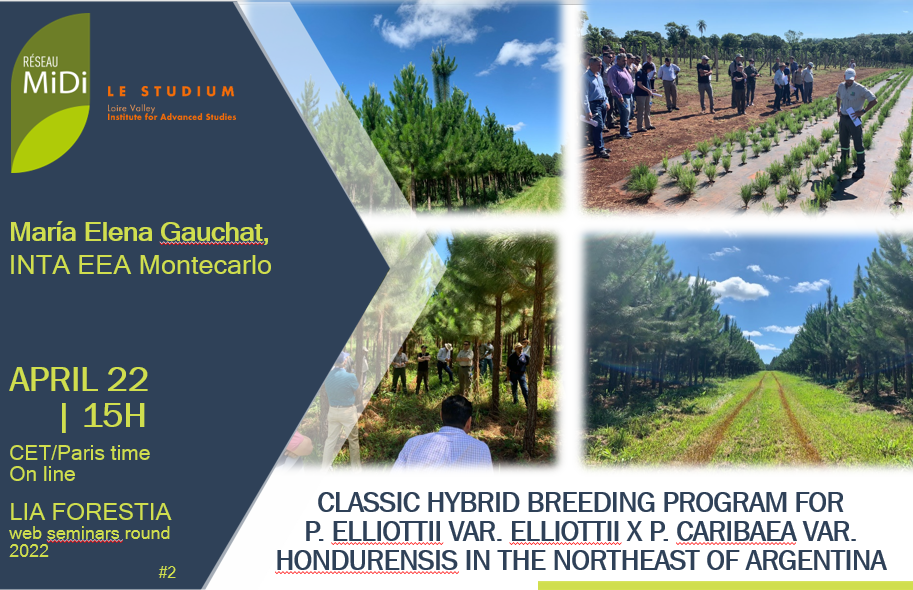Round of FORESTIA web seminars
SEMINAR # 9
« Extreme droughts, forest decline and mortality in the Patagonian Andes »
Ricardo Villalba,
IANIGLA-CONICET, Mendoza, Argentina
December 16 at 15h (CET/Paris time)
The International Associated Laboratory FORESTIA starts in 2022 a new round of short seminars aimed at stimulating the scientific comunication among its members, as well as between them and other international laboratories.
These seminars are a new opportunity for the FORESTIA scientists to present and discuss their objectives, research work and results on adaptation of forest ecosystems to global changes.
Seminar #9 by Ricardo Villalba, IANIGLA-CONICET, Mendoza, Argentina
Abstract
Climate and environmental changes are evident throughout the planet and the Patagonian Andes are not an exception. While widespread warming associated with Global Climate Change is the best documented process, other changes in climate, including more severe extreme events such as droughts and heat waves, have been clearly identified. Recently, extensive patches of mortality and forest decline have been observed in centuries-old native forests in the Patagonian Andes, representing a new component of the Andean landscape in response to climatic events of a magnitude rarely documented in the environmental history of the region.
In this context, it is interesting to ask how different in frequency and intensity the current droughts are in relation to those that occurred in the last centuries or millennia in the Patagonian Andes. Are the current extreme climatic events part of the natural climatic variability of the Andean-Patagonian environments, or do they represent unusual events that, not having occurred in the past, introduce irreversible changes in the forest dynamics of the Andes? In this presentation we combine high-resolution paleoclimatic records with climate scenarios to investigate changes in extreme drought regimes and their connections with forest mortality and decay processes in the region. In a perspective longer than 500 years, provided by the combination of dendrochronological records and climate simulations, we analyze the temporal evolution of extreme droughts and their potential impacts on the dynamics of Patagonian forests during the 21st century.
Free registration on LIA FORESTIA WEBINAR #9
Registration required to receive the connection link
This is the last Forestia seminar of 2022
MiDi is a interdisciplinary Research Thematic Network, focused on biodiversity and habitats and funded by the Centre-Val de Loire Region. The network aims to promote studies in multiple fields of BioGeoSciences and Human and Social Sciences in relation to global changes.
This conference is organised in partnership with the Le Studium (Institute for Advanced Studies).
contact: rtrmidi@univ-tours.fr


